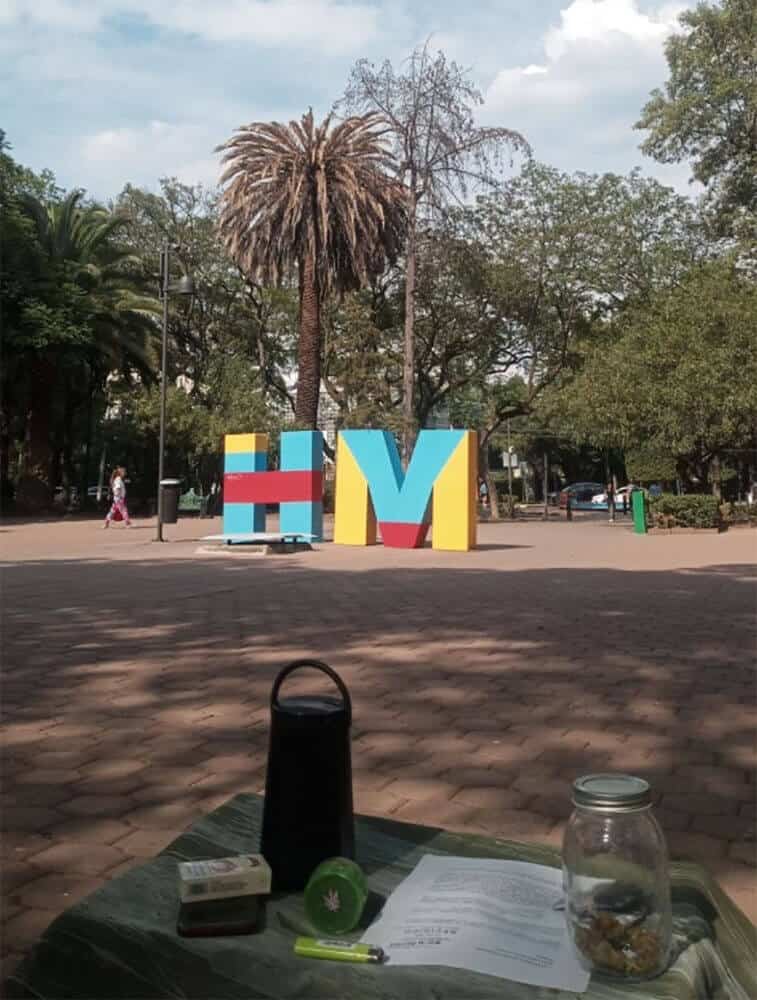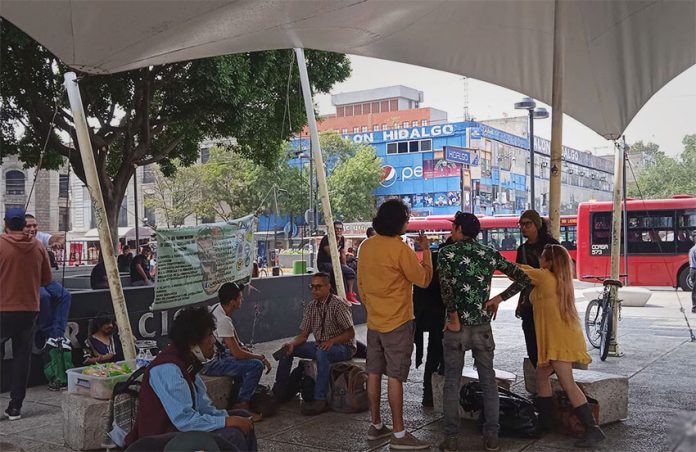Mexico City’s central square and a cannabis garden outside the federal Senate are among seven locations in the capital where pro-pot activists have established marijuana tolerance zones.
According to a report by the newspaper Milenio, members of the Laboratorio 4:20 collective have most recently “liberated” a section of the Glorieta de los Insurgentes, a public space surrounded by a large roundabout that adjoins the Insurgentes metro station.
The other four locations where marijuana smoking zones have been established are Parque América in the upscale neighborhood of Polanco; the Plaza de la Información near the Hidalgo metro station; Casa Tlaxcoaque near the Pino Suárez Metro station; and the Estela de Luz monument at the entrance to Chapultepec Park.
Daniela, a Laboratorio 4:20 member who has been instrumental in the establishment of the tolerance zones, told Milenio that the use of cannabis for recreational purposes is effectively legalized at the seven locations.
The Supreme Court, which ruled in 2019 that prohibition of marijuana is unconstitutional because criminalization violates the right to free development of personality, has directed Congress to legalize weed for recreational purposes, but lawmakers have repeatedly missed deadlines to do so.
Daniela said that Laboratorio 4:20 is seeking to guarantee pot smokers’ rights, even though those rights have not yet been enshrined in law.
Outside the tolerance zones, possession and use of mota – as marijuana is colloquially known in Mexico – is still criminalized, she said.
“The police still beat us and arrest us,” the pot proponent protested. “The narcos come and threaten us and people look at us as if we were the devil,” she added, referring to the experiences of marijuana activists and users in the tolerance zones.

Daniela explained how she and her fellow activist Yisus established the pot smoking area near Metro Hidalgo.
“It’s in front of the San Judas church. … People already used it to drug themselves with solvents and crack. One day Yisus set up a little table and we start to provide information about cannabis rights. At the start, the police arrived to remove us. But Yisus is a lawyer … and he showed his injunction [allowing him and other activists to use cannabis] and the documentation of our civil association. They stopped harassing us for a while and in that period we swept the plaza, washed it and potheads started to get together. Overnight the solvent sniffers departed. But what do you know? … [Drug dealers] arrived.”
The tolerance zone at the Estela de Luz (Stele of Light) – also known as the “monument to corruption” – was created during the pandemic, Daniela explained.
“But the narcos co-opted [the space] and threatened our people. Today, if you want to smoke at the Estela and you don’t take your own weed, you can only buy it from those people,” she said.
Other factors have also affected the tolerance zones. In the central square, or zócalo, for example, the smoking zone was fenced off recently when a replica of the Sistine Chapel was set up.
“Now you can only smoke on the streets [surrounding the square] in the middle of the traffic,” Miguel, another marijuana activist, told Milenio.
Mexico City is not the only city in the country where activists have “liberated” public spaces from what they see as unjust laws governing the use of marijuana.
In Oaxaca city, pro-marijuana activists occupied the El Llano park for months and pressured authorities to let them be. Their strategy worked.
In April, the city government advised police not to bother people smoking weed in public places in the state capital. In a letter to cannabis consumers, the government reiterated its commitment to respecting human rights and noted that there is no municipal law that expressly prohibits the “personal responsible consumption of cannabis in public spaces.”
The official position of Mexico City authorities is much the same. Mexico City police chief Omar García Harfuch told Milenio that arrests of marijuana users still occur, but stressed that the instruction to police is not to detain people smoking mota.
For her part, Attorney General Ernestina Godoy said bluntly that “we’re going after generators of violence,” rather than citizens with a penchant for smoking a spliff in the street.
With reports from Milenio
